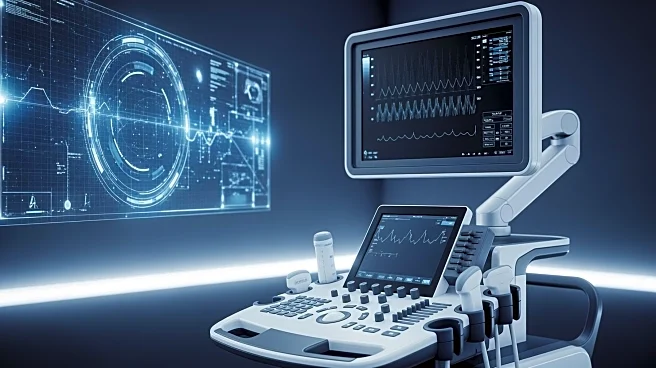What's Happening?
HistoSonics, a medical device company, has successfully raised $250 million in funding from prominent investors including Bezos Expeditions, K5 Global, and Thiel Bio. This investment round highlights the
growing interest in HistoSonics' innovative technology, which focuses on non-invasive tissue treatment using sound energy. The funding will be utilized to advance the development and commercialization of their proprietary platform, aiming to provide safer and more effective treatment options for patients. The involvement of Bezos Expeditions, which manages Jeff Bezos' personal investments, underscores the potential seen in HistoSonics' approach to medical technology.
Why It's Important?
The substantial investment in HistoSonics signifies a strong vote of confidence in the company's technology and its potential impact on the healthcare industry. By focusing on non-invasive treatment methods, HistoSonics aims to revolutionize how certain medical conditions are treated, potentially reducing the need for traditional surgical procedures. This could lead to improved patient outcomes, faster recovery times, and lower healthcare costs. The backing from high-profile investors like Jeff Bezos and Peter Thiel also highlights the increasing intersection of technology and healthcare, as well as the potential for significant advancements in medical treatments.
What's Next?
With the new funding, HistoSonics plans to accelerate the development and commercialization of its technology. The company is expected to focus on expanding its research and development efforts, as well as scaling its operations to bring its products to market. This could involve clinical trials and partnerships with healthcare providers to integrate their technology into existing treatment protocols. The success of these efforts could pave the way for broader adoption of non-invasive medical treatments, potentially transforming the landscape of healthcare delivery.
Beyond the Headlines
The investment in HistoSonics also raises questions about the ethical implications of non-invasive medical technologies. As these technologies become more prevalent, there will be a need to address concerns related to patient consent, data privacy, and the potential for over-reliance on technology-driven solutions. Additionally, the involvement of major tech investors in healthcare could lead to increased scrutiny regarding the influence of technology companies on medical practices and policies.









